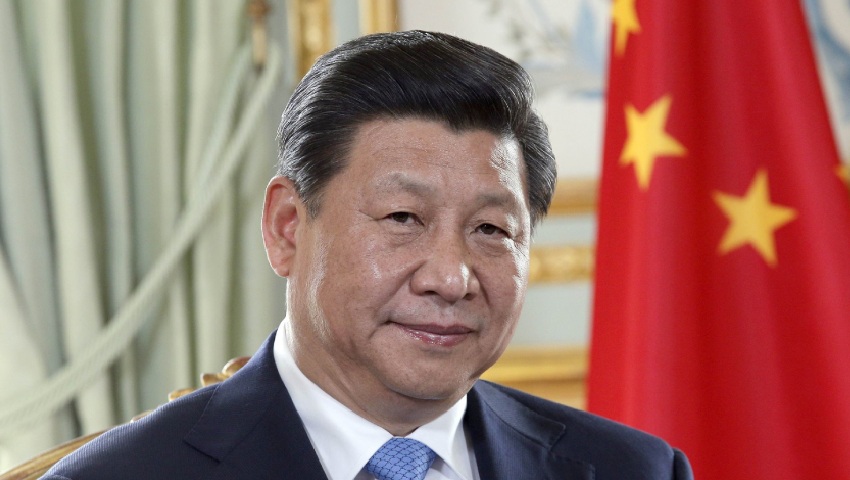Australia and its allies must not be charmed by the CCP’s “magic narrative”, which threatens to condition nations into accepting Chinese propaganda at the expense of their own national interests, one analyst warns.
In a new analysis, Dr John Lee, a non-resident senior fellow at the United States Studies Centre, shines a light on Chinese President Xi Jinping’s subtle attempts to advance CCP interests by shaping “grand narratives” about the communist republic.
“The genius is that these narratives condition us to accept Chinese policies meekly even if they are against our national interests,” he writes.
According to Dr Lee, this “magic weapon” is underpinned by five basic messages:
- Chinese dominance is the historical norm and is inevitable;
- The objectives of the CCP are permanent and unchanging;
- A CCP-led China is fundamentally undeterrable;
- The party is prepared to pay any price to achieve its core objectives; and
- The US is an increasingly weak and unreliable ally.
Dr Lee warns that by embracing these narratives, Australia and other states risk dulling opposition to CCP policies that undermine their own national interests.
“Striking an uneven bargain becomes seemingly preferable to foolishly balancing against the future inevitable dominant power,” he writes.
The analyst references Beijing’s response to the recent escalation in tensions with Australia.
“The message from Beijing underlying the cascading threats against Australia is that we would do better to make the best of this imminent Sino-centric future — as New Zealand apparently is doing — than fight against it,” he writes.
“To the extent that any cold hand of friendship is offered, Australia and others ought to pocket the guaranteed largesse that comes from submissively accepting Beijing’s conditions or risk ending up with nothing.”
Dr Lee warns that accepting Beijing’s premises places the onus on Australia and its allies to “soften their policies” or “accept blame”.
“These narratives have played out beautifully for Beijing in the South China Sea, where the US is often cast as the provocateur when it is conducting freedom of navigation operations, even those that serve to reaffirm the principles and rights of international law and challenge Beijing’s militarisation of illegal land features,” he continues.
Dr Lee also points to criticisms of the Morrison government’s decision to call for an investigation into the origins of the COVID-19 pandemic or its decision to scrap Victoria’s Belt and Road Initiative.
“Calling for an independent investigation into the deadliest and costliest non-kinetic disaster in 100 years to ensure it does not happen again is hardly overreach,” he observes.
“Neither is cancelling an agreement with Victoria that deliberately was used by the CCP to undermine the federal government’s legitimate authority over our external policy and that was used by Beijing to promote the BRI to other countries and provincial governments.
“As far as Beijing is concerned, silence equals acquiescence. But many, having fallen for the magical power of Beijing’s narrative, have normalised and internalised the CCP’s ill intent and compulsion.”
Dr Lee goes on to criticise recent rhetoric around a potential conflict between China and Taiwan, claiming that it is “incorrect and self-defeating” to assume the confrontation is inevitable.
“True, seizing Taiwan is a genuine core objective for the CCP. It would be prepared to pay a heavy price for meeting that objective,” he writes.
“But that is far removed from Xi or the regime being prepared to pay any price. Just as the CCP has based its strategy on identifying and acquiring the means to inflict prohibitive military, economic and political costs on the US and its allies, the latter countries are at the early stages of what it means to do the same to Beijing.”
“Our collective failure to think about and achieve that will loosen restraints on Beijing and increase the incentive for Beijing to use force.”
As such, the analyst called on Australia and its allies to pursue strategies aimed at persuading Beijing to “recalculate and alter its current trajectory”.
Dr Lee concludes, “China and the CCP have weaknesses, vulnerabilities and dependencies that have been carefully and cleverly concealed to perpetuate the preferred narrative.
“We and others are engaged in a tense and fraught period of renegotiating the terms of our relationship with China.
“Getting it right means dealing sensibly with reality as it is, not as the CCP would have the rest of the world believe.”
Get involved with the discussion and let us know your thoughts on Australia's future role and position in the Indo-Pacific region and what you would like to see from Australia's political leaders in terms of partisan and bipartisan agenda setting in the comments section below, or get in touch with



